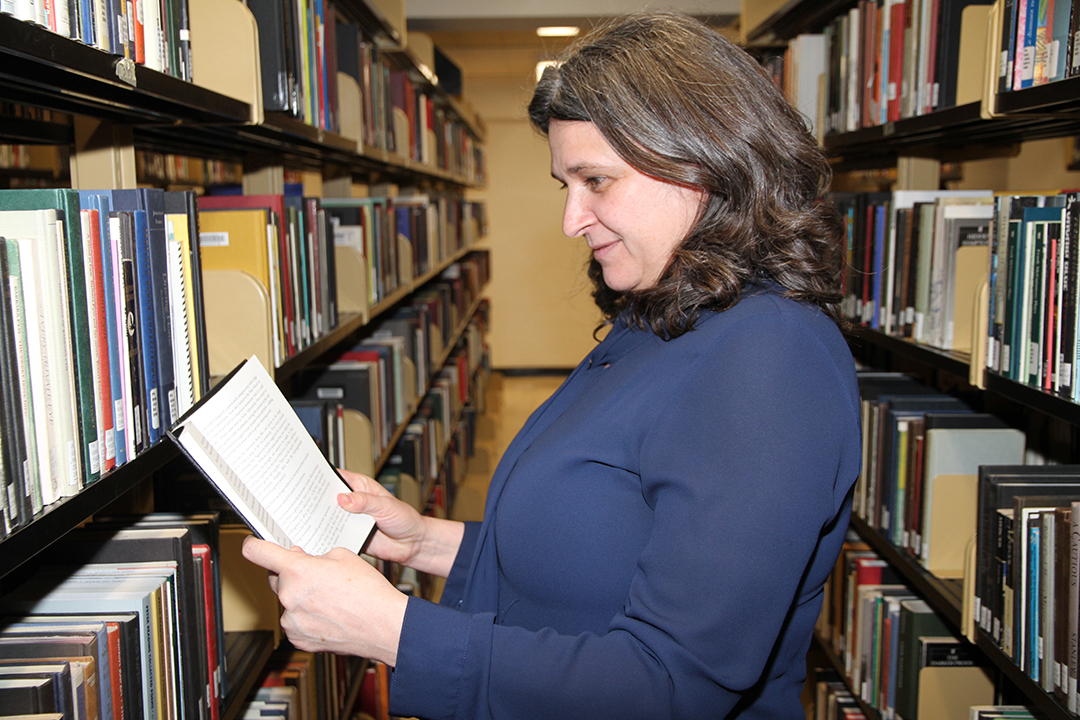
Borrowing program a hidden gem at the U of S
You can’t cram an entire library of resources into the overhead bin on a flight to another university, but for University of Saskatchewan faculty, students and staff, packing a reciprocal borrowing card in your luggage might just be the next best thing.
By James ShewagaAs a result of borrowing agreements in effect with the majority of universities across Canada as well as a number of institutions south of the border, individuals from the U of S heading to another school for a semester of study or teaching, or perhaps for a conference or research project, can sign up in advance for free to access post-secondary library resources at facilities all across North America.
“It’s a great program but it’s underutilized,” said Jen Murray, library systems analyst at the U of S. “We really want to get the message out there about this hidden gem of a service. We want to promote this service to get people’s attention and, hopefully, increase the number of campus community members taking advantage of this fabulous national agreement between academic libraries.”
Taking advantage of the Canadian University Reciprocal Borrowing Agreement is as simple as signing up at one of the seven libraries on campus, prior to travelling. As long as you are a borrower in good standing (without unpaid late fees), the program provides individuals access to library resources at more than 70 institutions across Canada, as well as close to 100 universities in the United States.
In Saskatchewan, the provincial agreement covers the U of S, University of Regina and Saskatchewan Polytechnic, allowing faculty, students and staff to borrow up to 25 items that can be returned to libraries at any of the three post-secondary institutions, meaning you can borrow a book in Regina and return it in Saskatoon.
Murray said there are approximately 15 researchers, students and staff from visiting institutions in Nova Scotia, Ontario, Manitoba, B.C. and Saskatchewan currently taking part in the program here at the U of S, with close to 300 having used the service in the past. U of S faculty and students also use the service annually, particularly off-campus distance education students living in other communities. Students taking U of S classes from afar can use this service to access resources at another campus that may be closer to home.
Murray said those who do sign up for the program are pleased with the results.
“It’s a great, robust program that gives you lots of access beyond U of S resources,” said Murray, noting that our digital library resources are also always accessible online to U of S individuals when they are off campus.
And for Murray and her fellow staff members, that desire to share library resources with as many people as possible is a guiding principal of everything they do.
“We want to get people recognizing that the libraries are there for them, for their research and for the sake of our communities,” she said. “Libraries are all about sharing and about access to information. And the more information that we can get you, the happier we are.”

